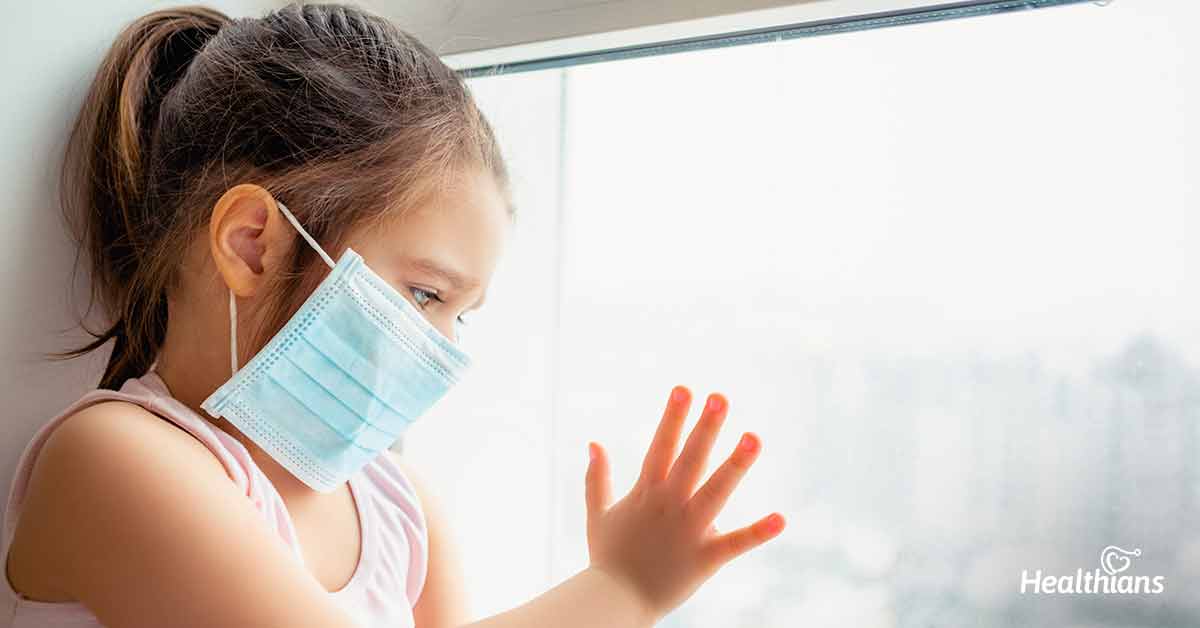Contributed by: Healthians Team
Coronavirus has caused significant disruption in the lives of children, and they have every right to be outraged. The disruptions feel bigger and heavier for them than they do for us because it represents a greater percentage of their time that they recall being alive – and we’re evaluating it against our lives and experiences. Even if we, as adults, don’t think it’s a big deal, these are moments that children have been anticipating for months, if not years.
Because so much of what they saw disrupted was a once-in-a-lifetime event, we adults need to offer space to our children, to vent, to throw tantrums, show pain, anger and redirect energies away from the pandemic.
Below are some cautionary steps that you should take to mitigate emotional disturbances in the life of your child:
- You can encourage your children to use digital tools like online fitness videos for kids and video games that involve physical mobility to get them up and moving. Remember to have a healthy balance of online and offline activities, including time spent outside if feasible.
- Because children frequently draw emotional cues from essential adults in their life, such as parents and teachers, it is critical that adults regulate their own emotions properly and remain calm, listen to children’s concerns, talk politely, and reassure them.
- You should also be on the lookout for indicators of worry and tension. COVID-19 may have an effect on your child’s mental health, so it’s crucial to show him or her that feeling overwhelmed is normal and OK. When in doubt, the best course of action is to offer support in addition to, and only after, expressing empathy.
- Many kids believe that anxiety is always a sign of mental illness, but in fact, psychologists have long recognized that anxiety is a natural and healthy function that helps us notice hazards and take protective actions. So saying to a teenager, “You’re having the proper reaction,” is incredibly useful. Some anxiousness is understandable right now; you’re expected to feel anxious.
- Then give them other tasks that may be of assistance, such as dropping off food to those in need or going shopping for them, or determining what sections of our community require assistance and doing things to assist those in need while maintaining social distance. Young people will feel better about themselves if they can find ways to help others.
- Another thing that can help with anxiety is to assist young people in finding distractions. What psychologists know is that when we’re dealing with chronically tough situations — and this is undoubtedly a chronically unpleasant situation that will continue for some time — it’s really beneficial to separate the problem into two categories: things I can control and things I can’t control.
- Finding positive distractions, according to research, can help us deal with the second category: we do our homework, watch our favorite movies, or curl up in bed with a good book. Right now, that is an excellent plan. There’s certainly a lot to be said for discussing coronavirus and anxiety as a method to find relief, and there’s also a lot to be said for not talking about it as a way to find respite.
- Kids need Structure. And what we all have to do is invent totally new frameworks to get through our days, and we all have to do it really quickly. As a result, I highly advise parents to ensure that there is a daily schedule in place, as well as a strategy for how time will be spent — which might include playtime where kids can use their phones to connect with their peers.
Here’s the bottom line: Kids require predictability — as much as you can offer in this scenario. So don’t wake up every morning and try to figure out the schedule. Try a schedule, or at least a preliminary one, for a week as a family, and then review it at the conclusion.




